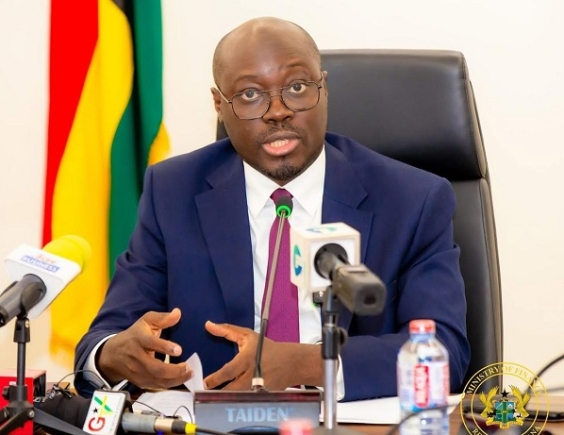
Ghana’s economic revival: Progress must match prudence
The recent projection by Fitch Solutions that Ghana’s economy will grow by 5.9 per cent in 2026, beating several emerging-market peers, including China, Indonesia and Kenya, demonstrates the country’s significant economic turnaround.
This projection, presented at the PwC’s post-budget forum, should inspire confidence among Ghanaians while serving as a clarion call for sustained vigilance in economic management.
Ghana’s projected growth path is particularly noteworthy when viewed against the backdrop of recent economic challenges. The country’s ability to bounce back from the difficulties of 2023, when fixed investment contracted sharply, shows the resilience of our economic fundamentals and the effectiveness of policy interventions implemented over the past two years.
The anticipated marginal increase from 5.8 per cent growth in 2025 to 5.9 per cent in 2026, driven by robust private consumption and recovering investment, signals that the economic recovery is not momentary success in the pan but a sustainable trend.
What makes this projection even more significant is its basis in solid macroeconomic performance. Unlike growth spurts driven by temporary windfalls or unsustainable debt accumulation, the current momentum appears anchored in genuine economic activity and improving business confidence.
The 2026 Budget’s support for this upward trajectory suggests that government policy is increasingly aligned with the needs of the productive sectors of the economy.
However, as we celebrate these achievements, we must remain conscious of the vulnerabilities that could derail our progress. The rising extremist activity in the Sahel region, particularly in Mali and neighbouring states, poses a genuine threat to Ghana’s economic stability.
While our country has been relatively insulated from violent spillovers compared to coastal neighbours like Benin, the expanding reach of Islamist militant groups demands that we do not rest on our achievements.
The observation by Fitch Solutions’ Mike Kruiniger that state control in northern Ghana remained stronger than in many neighbouring countries is reassuring, but it should not breed complacency.
The potential need to significantly increase military spending as currently among the lowest in sub-Saharan Africa could strain fiscal resources and divert funds from critical development projects.
This underscores the importance of regional cooperation and proactive security measures to address threats before they materialise at our doorstep.
As we look toward 2026 and beyond, with growth expected to remain healthy at around five per cent, several imperatives emerge. First, the government must continue to create an enabling environment for private sector growth, ensuring that the strong private consumption driving our recovery translates into increased domestic production rather than import dependency.
Second, efforts to attract and retain fixed investment must be intensified through policy stability, infrastructure development and investor-friendly reforms.
Third, and perhaps most critically, we must address the regional security dynamics with the seriousness they deserve. This may require difficult conversations about defence spending and enhanced cooperation with neighbouring countries and regional bodies like ECOWAS to contain the spread of extremism.
Ghana’s star is indeed rising in the emerging markets firmament. Our outstanding economic performance relative to global peers is a source of legitimate pride. But maintaining this course requires more than celebration, it demands continued discipline in economic management, strategic foresight in addressing security challenges, and unwavering commitment to the policies that have brought us this far.
The foundation for sustainable prosperity has been laid. Now we must build wisely upon it.